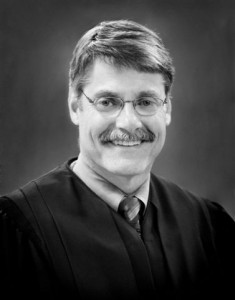Today was an eventful day in the fight against voter ID laws. In Wisconsin, ACT 23 was permanently struck down by a Dane County Circuit Court judge in a ruling released this afternoon (March 12). In Texas, a Federal court blocked a similar law that opponents claimed unfairly disenfranchised Hispanic voters. This on the heels of a law enacted in South Carolina, that was recently blocked by the U.S. Justice department, that holds veto power over certain civil rights laws in several southern states.
Voter ID has long been a favorite cause of Republicans in Congress and state houses to “combat voter fraud”. The claim of voter fraud has been a dubious one since there still remains little evidence that organized and widespread fraud exists. It surely does not exist on a scale that requires additional laws such as voter ID. While voter fraud does exist, annecdotal evidence does not a threat to democracy make. What is a threat to our democracy are laws like ACT 23 which harm whole groups of citizenry by throwing up barriers to voting in the spirit of, if not the actual method of poll taxes which were outlawed by 1966.
In a calm and reasoned ruling, Judge Richard Niess made several key observations about enfranchisement provided by the U.S. Constitution and how it applied to both the Wisconsin State Constitution and the authority by which the legislature and the governor could regulate elections.
First Judge Niess highlighted Article III of the constitution which addresses who may vote in Wisconsin:
Section 1. Every United States citizen age 18 or older who is a resident
of an election district in this state is a qualified elector of that district.
Article III, Section 2, ¶ (4) of the Wisconsin Constitution authorizes the
government to exclude from voting those otherwise-eligible electors (1) who have
been convicted of a felony and whose civil rights have not been restored, or (2)
those adjudged by a court to be incompetent or partially incompetent, unless the
judgment contains certain specifications. In its entirety, Article III, Section 2 reads:
Section 2. Laws may be enacted:
(1) Defining residency.
(2) Providing for registration of electors.
(3) Providing for absentee voting.
(4) Excluding from the right of suffrage persons:
(a) Convicted of a felony, unless restored to civil rights.
(b) Adjudged by a court to be incompetent or partially incompetent,
unless the judgment specifies that the person is capable of
understanding the objective of the elective process or the judgment
is set aside.
(5) Subject to ratification by the people at a general election,
extending the right of suffrage to additional classes
He followed by contrasting what ACT 23 required of Wisconsin electors…. (a.k.a. Voters)
2011 Wisconsin Act 23, effective June 10, 2011, now provides that qualified
electors under the Wisconsin Constitution may not vote in an election unless they
also satisfy the additional requirement that they display acceptable government-3
sanctioned photo identification either at the polls or to election officials by 4:00 p.m.
on the Friday following the election.
…with the actual authority the Wisconsin government has to regulate elections.
The government may not disqualify an elector who possesses those
qualifications on the grounds that the voter does not satisfy additional statutorily created qualifications not contained in Article III, such as a photo ID. The people’s fundamental right of suffrage preceded and gave birth to our Constitution (the sole source of the legislature’s so called “plenary authority”), not the other way around….In other words, defendants’ argument that the fundamental right to vote must yield to legislative fiat turns our constitutional scheme of democratic government squarely on its head…This is why, over the years, although recognizing that the legislature and governor are accorded implicit authority to enact laws regulating elections, our Supreme Court has repeatedly admonished that such laws cannot destroy or substantially impair a qualified elector’s right to vote.
It is clear through previous federal and state case law citations, Judge Niess has re-established the importance of maintaining suffrage for all citizens above what can be seen as the more parochial threat of voter fraud, which he acknowledges is within the purview of the government to regulate. One final passage toward the end of his ruling sums up the key consideration in why ACT 23 must be enjoined
Where does the Wisconsin Constitution say that the government we, the people, created can simply cast aside the inherent suffrage rights of any qualified elector on the wish and promise – even the guarantee – that doing so serves to prevent some unqualified individuals from voting?
It doesn’t. In fact, it unequivocally says the opposite. The right to vote
belongs to all Wisconsin citizens who are qualified electors, not just the fortunate
majority for whom Act 23 poses little obstacle at the polls.
Accordingly, while the legislature and governor are constitutionally accorded
broad authority to police fraud in elections, including through criminal and civil
penalties, their power, like all police power, ends at the precise point where it
transgresses the fundamental voting rights of Wisconsin citizens.
Finally while preparing this post, a friend found a key passage from a report that basically reduces voter ID laws to what they have always been; a solution looking for a problem.
According to the Brennan Center for Justice: “Because voter fraud is essentially irrational, it is not surprising that no credible evidence suggests a voter fraud epidemic. There is no documented wave or trend of individuals voting multiple times, voting as someone else, or voting despite knowing that they are ineligible. Indeed, evidence from the microscopically scrutinized 2004 gubernatorial election in Washington State actually reveals just the opposite: though voter fraud does happen, it happens approximately 0.0009% of the time. The similarly closely-analyzed 2004 election in Ohio revealed a voter fraud rate of 0.00004%. National Weather Service data shows that Americans are struck and killed by lightning about as often.”



The Electoral College has no impact on voter fraud. It’s just an auteqnatid way of allocating votes by state to elect the President instead of using the popular vote.The only argument might be that if there were a Direct Popular Election of the President then if you could generate thousands of fraudulent votes in one corrupt locale those votes would have more impact on the election than if there was the Electoral College to dilute their impact. One might wonder how many dead Democrats would still be voting every election in Chicago, for example.